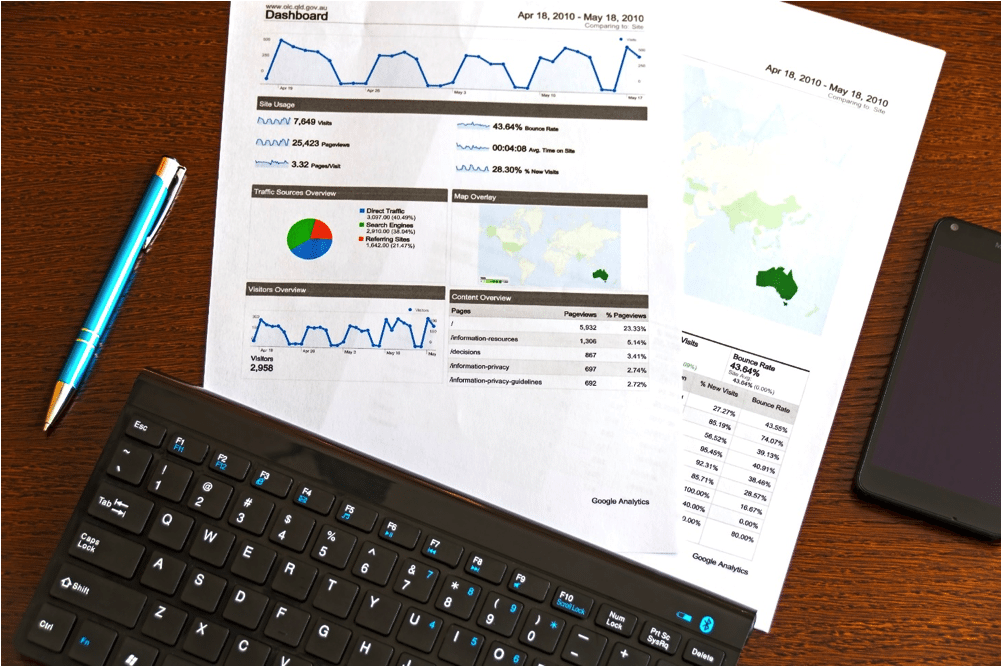Skift Take
A thorough revenue management strategy can be one of the most important steps a hotel can take to generate and optimize revenue.
This sponsored content was created in collaboration with a Skift partner.
Today, we’re publishing an eBook by Rainmaker, “Rainmaker’s Guide to Revenue Management,” which explores how hotels can create sustainable revenue management strategies.
In the highly competitive hospitality industry, it’s critical to assemble as much information as possible to make educated decisions: enter revenue management.
Put simply, hotel revenue management is selling the right room to the right customer at the right moment at the right price through the right channel. To be more specific, revenue management is a data-driven application consisting of three interdependent elements: customer, product, and price. The customer demand for a product is determined by price, which, in turn, is also influenced by demand. Meanwhile, the supply of a product is assumed to be limited and perishable. The objective of revenue management is to maximize future revenues by balancing both supply and demand.
Leveraging Every Metric
We are now at a point where big data is rapidly generated and collected. Additionally, data has become increasingly sophisticated in terms of variety, volume, and velocity. But while revenue management relies on a wide range of data, data alone is not enough.
A revenue manager must take many factors into consideration, such as changes in consumer behavior, the roles of various distribution channels, and the behavior of the competitive set. The revenue manager also needs to know how to create forecasts, use segmentation, and implement pricing models. Having an overall understanding of the property, the market, and where the property fits into the market allows a revenue manager to be proactive rather than reactive.
An Evolving Technological and Distribution Landscape
Revenue management strategies have changed rapidly over the last decade as technology has developed. The number of distribution channels has increased dramatically, influencing the way consumers research and purchase travel. Technology also offers new insights into consumer behavior and sentiment. A revenue manager’s job now is to analyze all available data to determine the tactics that will produce the greatest revenue and optimize room inventory.
Online travel agencies (OTAs) have become a somewhat unwelcome reality in the travel and hospitality industries. These channels are often a controversial topic and the subject of great animosity for hotels, but it’s critical to fully evaluate their advantages and disadvantages as a part of the overall revenue strategy.
While there’s often a higher cost for these bookings, the upside is that they provide valuable exposure that can drive bookings as well. In many cases, there’s no way this same level of exposure or bookings could be attained, whether directly or via lower-cost channels. But there are many things to consider when working closely with an OTA that go beyond increased bookings. Consumers are building strong brand loyalty and trust with OTAs, meaning that hotels are losing out on building these relationships.
Business Intelligence (BI)
Revenue management systems predict future demand trends, and BI systems can help explain the “why” behind the trends. Data collected from BI tools can help users understand the root of demand trends, allowing revenue managers to act while there’s still time to impact demand for a future arrival date.
For example, imagine a property with future demand generally lower than expected during a specific time period. This trend would first be predicted by demand forecasting, a revenue management process. The revenue manager could then make pricing decisions that optimize predicted revenue based on predicted demand. In the case of a shortfall in demand, the general trend would be for prices to fall. But dropping price is not always the right thing to do, and that’s where revenue management and business intelligence intersect.
The Impact of Alternative Accommodations
Airbnb is proving to be agile competition for traditional hotels, and inventory and pricing are being adjusted quickly to meet fluctuations in demand. The potential impact of this competition varies widely by hotel type and location, though boutique and lifestyle hotels in New York City and other urban centers are likely seeing the most competition. But given Airbnb’s continued rapid growth, no hotelier can afford to be complacent. Instead, they should arm themselves ahead of time in case they need to account for Airbnb in their market.
To determine how they should respond, revenue managers need access to good data that can help them assess the penetration of Airbnb in their market. This can be done by taking Airbnb revenue divided by hotel revenue at whatever level the data can be accessed, from the total market level down to the immediate locality.
Airbnb’s impact on hotel revenue is at its highest at times of peak demand—major events typically create an explosion in new listings. Complicating matters for revenue managers monitoring local Airbnb inventory is that these new listings tend to stay posted long after the event, even if they’re not active. Revenue managers must have a finger on the pulse of what’s going on in their market and understand the impact of events in the age of Airbnb.
Why Revenue is Everything
A comprehensive revenue management strategy can be one of the most important revenue generating initiatives available to a hotel. A successful approach requires a solid understanding of marketplace dynamics and general economic climate. Revenue managers need to have a clear picture of the competitive landscape as well as insight into consumer sentiment collected from social media and online review sites.
All of this information must be synthesized before revenue managers can leverage automation to forecast demand, develop dynamic pricing strategies, and successfully navigate the complex landscape of online distribution channels.
This content was created collaboratively by Rainmaker and Skift’s branded content studio, SkiftX.
Have a confidential tip for Skift? Get in touch
Tags: expense management, hotels, pricing, Rainmaker



